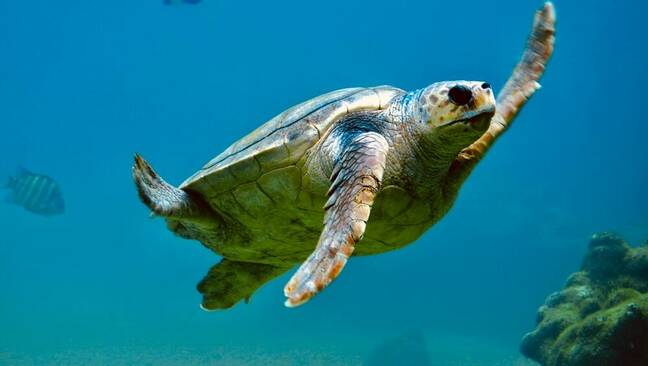Eco warriors sue FAA over Starship fallout, claim watchdog is lost in space
NEPA was violated by letting SpaceX do its own impact study, suit alleges
A group of environmental nonprofits and an indigenous nation have sued America's Federal Aviation Administration (FAA) over the fallout from SpaceX's failed Starship launch last month.
The plaintiffs claim the regulator violated the National Environmental Policy Act (NEPA) by allowing SpaceX to even attempt to get Starship off the ground.
The suit [PDF] filed in a Washington DC district court yesterday, claims the FAA's decision to approve SpaceX's launch plans in Boca Chica, Texas, failed to follow proper procedural rules under NEPA and the Administrative Procedure Act (APA) by allowing SpaceX to perform and report on its own programmatic environmental assessment (PEA).
SpaceX's report, the plaintiffs allege, wasn't as detailed as an in-depth environmental impact study (EIS), which they say should have been performed despite SpaceX's claims that it had implemented some 70 mitigation measures to protect the local environment and wildlife.
The FAA's move to delegate the study to SpaceX was "arbitrary and capricious, an abuse of discretion, or otherwise not in accordance with law," the plaintiffs claim in the suit. As a result, they want the FAA's launch clearance for the Starship and Super Heavy Launch Vehicle found in violation of the NEPA, and want SpaceX's application for a vehicle operator license vacated and remanded for NEPA compliance.
Plaintiffs in the suit include The Center for Biological Diversity, the American Bird Conservancy, SurfRider Foundation, Save Rio Grande Valley and the Carrizo-Comecrudo Nation of Texas, who claim Boca Chica as sacred land and the setting of their creation myth.
April 20 was all the proof we need
The FAA has already grounded Starship pending a safety investigation after its failed launch on April 20 that scattered debris, dust and ash over a nearby town and National Wildlife Refuge. Since the launch it has come out that Starship destroyed its launchpad, scattering concrete debris far enough to obliterate the windows on vehicles parked at what one would have assumed was a safe distance.
According to the lawsuit, debris analysis after the launch was limited to a 700-acre area, though it claims evidence points to debris spreading much further.
Along with allegations of damage to infrastructure and property, plaintiffs in the FAA lawsuit say the area – home to a National Wildlife Refuge, two state parks, a state wildlife management area, and a coastal preserve – needs special attention that should necessitate a full EIA, not a PEA, which requires less intense scrutiny of the area.
"These lands are of extraordinary conservation value for a range of federally and state listed wildlife and other protected species such as migratory birds," the plaintiffs say in the suit. Those species include the federally threatened piping plover, red knots, northern Aplomado falcons; Gulf Coast jaguarundi; ocelots; hawkbill, leatherback, loggerhead and green sea turtles and the Kemp's Ridley sea turtle, considered to be the most critically endangered sea turtle species in the world. Several of those animals are also sacred to the Carrizo Comecrudo people.
Get spotting, twitchers!
Whether or not the lawsuit has merit, twitcher Reg readers (that's very enthusiastic birders for our US audience) based in and around the piping plover's Atlantic coast nesting areas can help conservation efforts for the rare bird by sharing your sightings (including grid reference and how many you saw) to waterbird.manager@birdscaribbean.org or on the BirdsCaribbean listserv. The group have completed their yearly census, but are still looking for more data on the birds' yearly habitats.
For those interested who aren't too familiar, there's a guide to the creatures' spooky call and some pics showing how you can discern differences between Charadrius melodus and other plovers here.
- Space: The final frontier, or the next venture capital gold rush
- Ashlee Vance spills the beans on the secret exciting life of space startups
- US watchdog grounds SpaceX Starship after that explosion
- SpaceX's second attempt at orbital Starship launch ends in fireball
Researchers from the US Fish and Wildlife Service said last week that they had not found any carcasses of endangered animals on land they manage, though they note they weren't able to access the site for two days after Starship's failed launch, meaning carcasses could have been eaten, washed away or removed prior to their search.
Along with endangering those species and depriving the Carrizo Comecrudo peoples of access to their sacred sites, the suit claims that Boca Chica locals were also negatively affected by SpaceX and the FAA's failure to follow the rules. There's only one coastal access road into and out of Boca Chica Beach, the lawsuit claims, and it's closed up to 500 hours a year (more than 20 days) due to SpaceX construction and launch activities. The road was closed on 100 separate days, the lawsuit claims.
"These closures have a significant impact on the local community, including the cultural, social, and spiritual interests of the Carrizo/Comecrudo Nation of Texas, which the FAA failed entirely to address in the PEA," the plaintiff's lawyers said in the suit. The FAA also failed to address environmental harm due to debris recovery efforts and the climate change impact of such a massive amount of fuel into the atmosphere, the suit claims.
Finally, "the PEA acknowledges that the FAA anticipates further 'anomalies' [i.e. explosions] from the Starship/Super Heavy program," the suit claims, adding that there have already been eight such "anomalies" in the area over the past five years due to SpaceX's less-than-stellar success record with Starship.
SpaceX owner and CEO Elon Musk has claimed that another Starship launch could happen in as little as six to eight weeks. It isn't immediately clear whether the lawsuit would postpone those plans as SpaceX hasn't answered our questions and the FAA declined to comment, citing the ongoing nature of the case. ®


